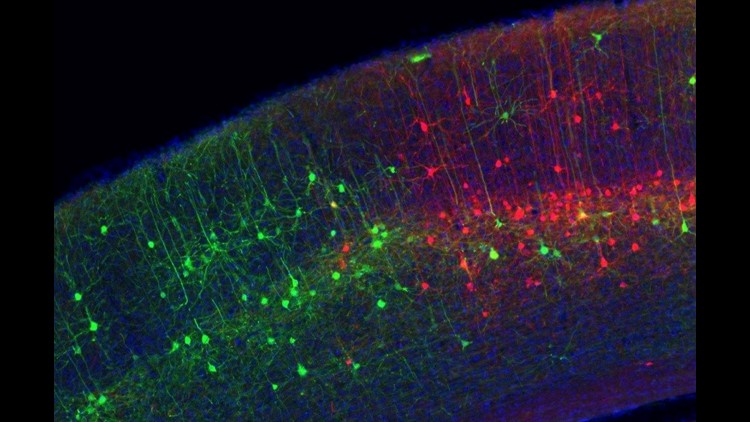LA JOLLA (CNS) - The Salk Institute for Biological Studies of La Jolla was Monday awarded a $25 million, five-year grant by the National Institutes of Health in conjunction with its brain-mapping initiative.
Launched in 2013, the Brain Research through Advancing Innovative Neurotechnologies Initiative is a large-scale effort to bolster neuroscience research and equip scientists with insights necessary for treating a wide variety of disorders, like Alzheimer's disease, schizophrenia, autism, epilepsy and traumatic brain injury.
Scientists led by Salk, and including researchers from UC San Diego and USC, aim to systematically identify and catalogue cell types across the mammalian brain. According to Salk, the studies will revolutionize the understanding of the human brain.
"Developing an atlas of brain cell types is an incredibly ambitious undertaking but one that is critical to uncover brain function," said Salk President Elizabeth Blackburn. "With this generous grant, we will be able to better understand the organ that not only makes us who we are, but whose dysfunction -- from mental illness to the degeneration of Alzheimer's disease -- causes some of the most acute kinds of human suffering."
In all, the NIH announced 110 new awards totaling $169 million, bringing total BRAIN Initiative funding for this year to $260 million.
"Understanding the way the brain processes information and how it lays down memories and retrieves them will be instrumental for understanding brain health, and ultimately, preventing brain disease," said Dr. Francis Collins, NIH director. "These awards add to work already underway to give us a high- resolution picture of the circuits and networks in the brain, how they work, and where they can go wrong."
The brain is made up of many types of cells that scientists are just beginning to identify, according to researchers led by Salk.
Pinpointing the different cells can help reveal how the brain works, and what happens when it doesn't, but the scientists said they lack a systematic catalog that identifies cell types across the entire brain. They also don't have an appropriate way to genetically target the majority of cell types for research for potential therapeutic uses, particularly in humans.
The Salk group proposed a series of experiments to identify, catalog and characterize brain cell types in mice via molecular signatures. They would then link those cells types to their inputs and outputs.
The project, called the Center for Epigenomics of the Mouse Brain Atlas, will require collecting data from over 100 brain regions covering the entire mouse brain. Those cell types would then be associated with anatomical features that may be common to nervous systems generally and therefore subject to similar methods of monitoring and manipulation in other species.
"One of the first steps in understanding how any complex system works, from a car to a computer, is to come up with a parts list," said Joseph Ecker, director of Salk's Genomic Analysis Laboratory.
"In the case of the brain, we have only just begun to identify the myriad cell types we know must exist," said Ecker, also an investigator with the Maryland-based Howard Hughes Medical Institute. "Once we have a more complete understanding of what the parts are, we will be able to investigate their function and, perhaps more importantly, their dysfunction."



